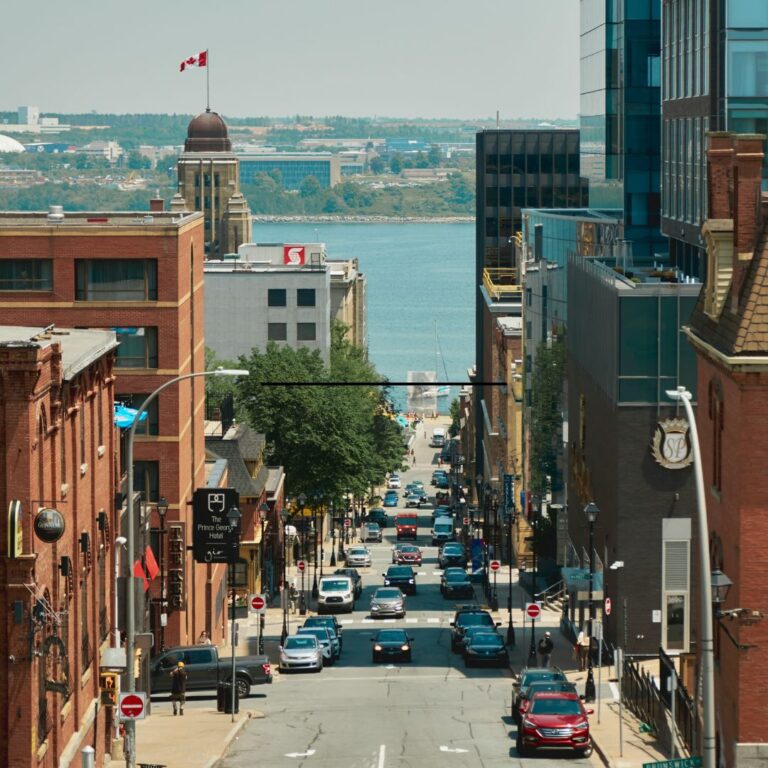20 Pros And Cons Of Living In Nova Scotia In 2026

Are you planning to move to Nova Scotia?
Nova Scotia is located in the Canada’s eastern coast, is filled with enchanting landscapes, rich cultural offerings, and charming community.
But with all those amazing beauties of Nova Scotia, there are some cons which you must know before moving to Nova Scotia. Well, the pros are overweighing the cons, so no need to worry about that.
In this post, I will take you on an amazing journey about the “pros and cons of living in Nova Scotia” to help you make a decision of next place to call it home.
Also Read: Why Nova Scotia Is A Good Place To Live?
20 Pros And Cons Of Living In Nova Scotia
1. Pros: Natural Beauty
Nova Scotia’s stunning landscapes, including picturesque coastlines, lush forests, and charming fishing villages, offer a unique and captivating environment.
2. Cons: Economic Opportunities
The job market might be limited, especially in specialized fields. Some residents may find better career prospects in larger provinces.
Also Read: How To Find Job In Halifax, Nova Scotia As An International Student?
3. Pros: Quality of Life
With friendly communities, relatively low crime rates, and a strong sense of community, Nova Scotia often provides a high quality of life for its residents.
4. Cons: Isolation
The province’s remote location could result in longer and potentially more expensive travel to other regions.
5. Pros: Affordable Housing
Housing costs are generally more reasonable compared to larger Canadian cities, making it an attractive option for those looking to buy a home.
6. Cons: Weather
Nova Scotia experiences varying weather conditions, including cold winters and damp, foggy maritime climates. While milder than some Canadian provinces, the winter climate is colder and snowier than many other parts of the world.
7. Pros: Outdoor Activities
Nova Scotia’s diverse geography offers abundant opportunities for outdoor recreation, from hiking and biking to water sports like kayaking and sailing.
Also Read: 8 Best Place To Visit In Nova Scotia
8. Cons: Seasonal Tourism
Some areas experience a surge in tourism during the summer months, leading to increased crowds and possible higher costs.
9. Pros: Cultural Heritage
Rich in history and cultural heritage, the province boasts vibrant festivals, museums, and historical sites that celebrate its past and present.
10. Cons: Limited Urbanization
While Halifax offers urban amenities, it might not match the cultural and entertainment options of larger cities in other provinces.
11. Pros: Education and Healthcare
Nova Scotia benefits from Canada’s robust education and healthcare systems, ensuring good services for residents.
12. Cons: Healthcare Access
Although healthcare is generally good, certain rural areas might have limited access to specialized medical services.
13. Pros: Seafood and Cuisine
The province’s coastal location allows for fresh seafood, and its culinary scene celebrates both local and international flavours.
14. Cons: Economic Vulnerabilities
The province’s economy can be susceptible to fluctuations in industries such as fishing, forestry, and tourism.
15. Pros: Fishing and Maritime Traditions
Nova Scotia’s fishing heritage and maritime traditions can be appealing to those interested in maritime activities and coastal living.
16. Cons: Distance from Larger Cities
Those accustomed to the conveniences of larger cities might find limitations in terms of shopping, entertainment, and cultural events.
17. Pros: Educational Institutions
The province hosts various universities and colleges, offering educational opportunities for residents and students.
18. Cons: Language Considerations
While English is primary, French might be more commonly spoken in certain areas, particularly Acadian communities.
19. Pros: Diverse Landscapes
From the rugged beauty of the Cabot Trail to the fertile farmlands of the Annapolis Valley, Nova Scotia offers a variety of landscapes within a compact area.
20. Cons: Internet Connectivity
Internet connectivity might not be as robust in some rural areas compared to more urbanized regions.





